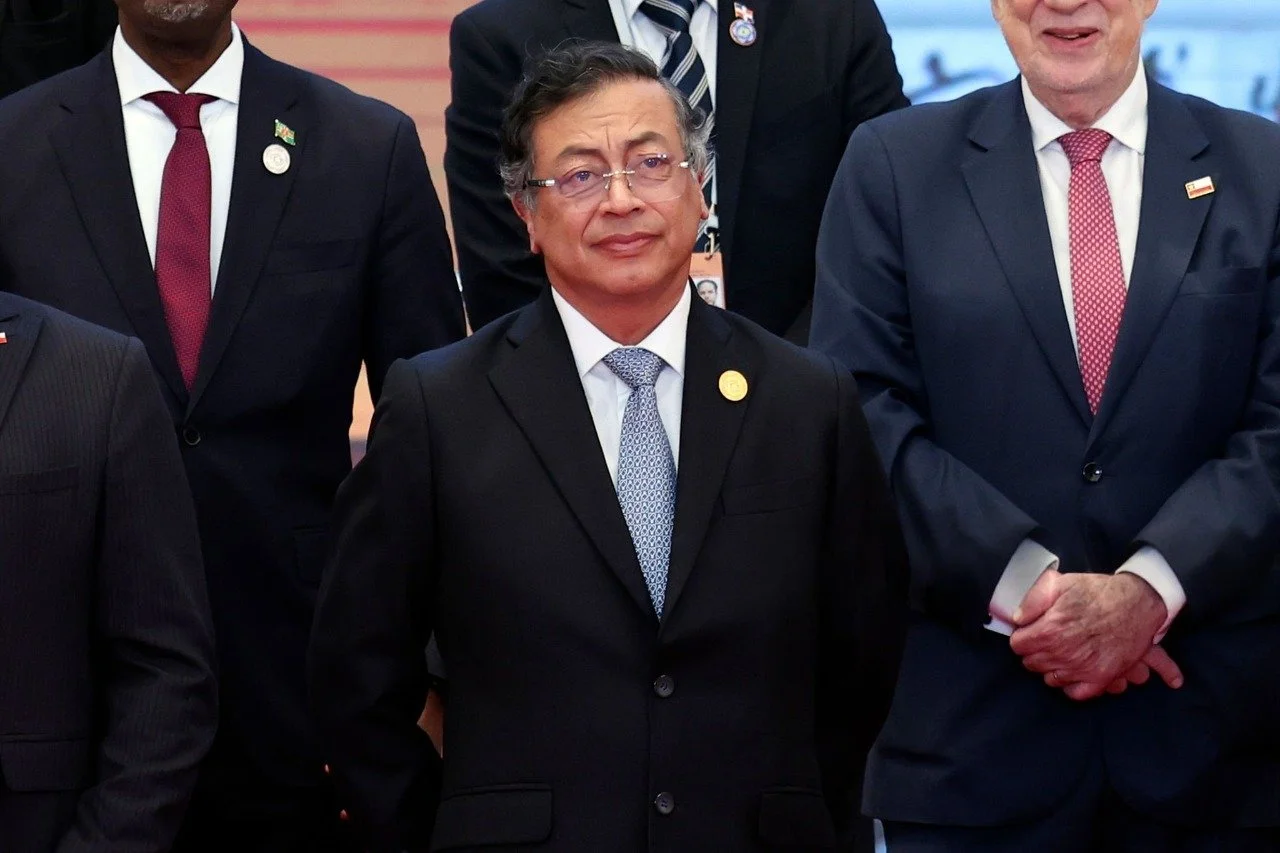Latin Analysis: Gustavo Petro and the Long Road to Labor Reform
pool
The election of ex-rebel Gustavo Petro, Colombia’s first left-wing president, to power in June 2022 was historic. His record and successes as president, however, have left much to be desired for many Colombians. This has contributed to a significant fall in the President’s popularity since his election with 50.5 per cent of the vote just three years ago. A poll from March 2025 recorded Petro’s highest disapproval rating ever, reaching 57.2 per cent of the population, with 34.8 per cent of Colombians believing that Petro will not achieve his goals with just over a year left in office. This stands in stark contrast to his ranking as one of the best sitting presidents in Latin America in 2022.
Several things could be attributed to this fall from grace. Various scandals have marred Petro’s public image, with some high ranking government officials even being found guilty on serious corruption charges. Understandably, these events have significantly undermined public trust in Petro’s administration, one that promised to bring “real change” to the country.
However, bringing about real change has been difficult for Petro’s government due to various political dynamics at play. Petro came to power on the platform of the Historic Pact for Colombia coalition, a bloc made up of various leftist political parties and movements. Although this coalition got Petro to power and garnered support from across Colombia, they do not enjoy a majority in the Senate, which has proved to be a big obstacle for the President’s political plans. Thus, most of the reforms proposed by the government have been rejected by the legislative branch of government. For example, between July and December 2024, “only seven of the 1,011 bill proposals considered by Congress were approved.” Out of these seven approved bills, only two of them were introduced by the government, with lawmakers responsible for the remaining five. This has not only prevented the President from fulfilling his campaign promises but has also strained relations between the executive and the legislature.
A recent example of this has been the government’s attempt to push through labor and health reforms, which include the “cutting the standard daytime work shift to eight hours, doubling pay for work on Sundays and holidays, formalizing employment for digital platform workers, extending paternity leave to 12 weeks and ensuring equal pay for men and women”. All of this has been a key part of Petro’s policy aspirations since he took office. However, after months of stalling by the Senate to prevent these reforms from progressing, Petro threatened to put this proposal to the electorate, in a so-called ‘special election’ in which the Colombian people would decide. Then, in May, the Senate formally rejected the proposal. In response to this, the President attempted to issue a decree to convene a referendum in June, to circumvent Senate proceedings and push his bill through.
There was significant backlash to this move. Opposition figures accused Petro of undermining the separation of powers within government, given that protocol dictates that the Senate should rule on taking a referendum before it is put to the public. They believed this decision undermined Colombia’s constitution, and that it was actually “aimed at boosting Petro’s party ahead of 2026 elections”. Although the judicial branch eventually supported the Senate’s decision and refused to allow Petro’s decree, a revised version of the bill was eventually passed in mid-June, following extensive scrutiny and parliamentary debate.
According to many involved in legislative processes in Colombia, there were clear reasons not to support Petro’s actions regarding these reforms. Some believe that they are fiscally irresponsible, with business groups voicing concerns about job losses and increases in unregulated employment. These concerns have understandably raised the alarm among legislators, given that Colombia’s economy currently finds itself in an increasingly precarious situation. The fiscal deficit reached 6.8 per cent in 2024, and although inflation was recorded at its lowest level in May 2025 since October 2021 at 5.05 per cent, Colombia still faces mounting financial pressures. Therefore, the OECD recently reduced Colombia’s 2025 growth projection to 2.7 per cent from the initially predicted 2.7 per cent, in the face of persisting pressure. Additionally, Moody's and S&P Global Ratings downgraded Colombia's sovereign credit ratings following recent government decisions to lift previously established borrowing limits. The fact that “Moody’s lowered its rating to Baa, the lowest investment grade, while S&P cut local bonds deeper into non-investment territory (BB+)” spells trouble for the Colombian peso, which is expected to depreciate in comparison to the dollar as a result. Considering this, despite Petro’s repeated claims that Congress is 'corrupt and dysfunctional,' there are legitimate economic concerns about the viability of these measures that extend beyond political tensions.
With just over a year to go until the next election, Petro must do all he can to shore up his legacy. Although he cannot seek re-election himself, the future of his party lies in his ability to make real positive change in Colombia, a country that is facing monumental challenges. However, decrees and attempts to bypass the legislature are unfortunately not helping the president to improve his ratings by getting legislation through. On the contrary, these actions are only feeding accusations of corruption, and causing many people to question in the first leftist president of the country has actually delivered the real change he set out to make happen.

